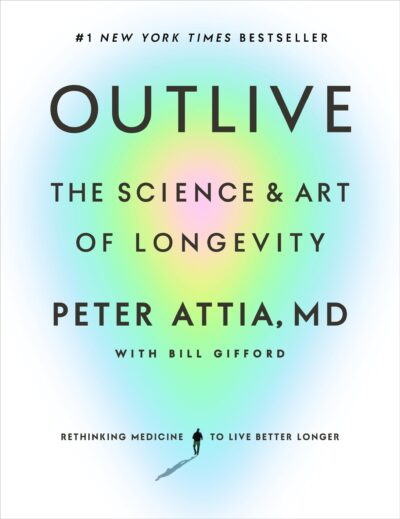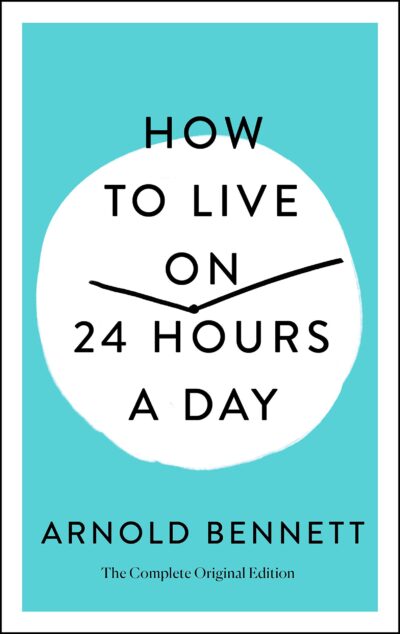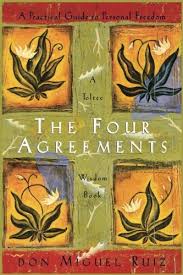68 Results with the "Self-help" genre
Adventure Fiction (1164)
Biography (435)
Business & Finance (1)
Children's Literature (124)
Comics (6)
Culture (51)
Drama (123)
Dystopian (29)
Fable (86)
Fantasy (1132)
Fantasy (203)
Fiction (1010)
Finance (1)
Gothic Fiction (12)
Historical Fiction (615)
History (122)
Horror (56)
Lifestyle (36)
Literary (404)
Literary Fiction (207)
Memoir (113)
Mystery (422)
Non-fiction (87)
Novel (549)
Paranormal Fiction (96)
Philosophical (182)
Philosophy (45)
Poetry (249)
Political Fiction (14)
Politics (42)
Practical (32)
Psychological (4)
Psychological Thriller (108)
Relationship (6)
Romance Novel (716)
Romantic Melodrama (14)
Satire (91)
Science (46)
Science Fiction (345)
Society (65)
Society (2)
Spiritual Growth (1)
story (2)
Thriller (704)
True Crime (56)
view (11)
Women's Fiction (2)
Young Adult (233)
-
Chapter
Introduction
 Introduction to the narrator’s journey begins with a recurring dream that captures his feelings of inadequacy and helplessness, where he attempts to catch falling eggs on a city sidewalk—an endeavor that symbolizes his relentless but futile attempts to save patients during his surgical training at Johns Hopkins Hospital. The dream unfolds with him chasing after the eggs, which represent his efforts to intervene and save lives, but despite his best efforts, every egg shatters upon hitting the ground.…
Introduction to the narrator’s journey begins with a recurring dream that captures his feelings of inadequacy and helplessness, where he attempts to catch falling eggs on a city sidewalk—an endeavor that symbolizes his relentless but futile attempts to save patients during his surgical training at Johns Hopkins Hospital. The dream unfolds with him chasing after the eggs, which represent his efforts to intervene and save lives, but despite his best efforts, every egg shatters upon hitting the ground.…-
87.7 K • Ongoing
-
-
Chapter
INDEX
 INDEX The page numbers in this index refer to the printed version of this book. To find the corresponding locations in the text of this digital version, please use the “search” function on your e-reader. Note that not all terms may be searchable. Page numbers in italics refer to illustrations. abandonment, 140, 141, 150, 179, 301, 304, 327, 340, 350 Abilify, 37, 101, 226 ACE (Adverse Childhood Experiences) study, 85, 144–48, 156, 347, 350–51 acetylcholine, 266 acupressure, 264–65,…
INDEX The page numbers in this index refer to the printed version of this book. To find the corresponding locations in the text of this digital version, please use the “search” function on your e-reader. Note that not all terms may be searchable. Page numbers in italics refer to illustrations. abandonment, 140, 141, 150, 179, 301, 304, 327, 340, 350 Abilify, 37, 101, 226 ACE (Adverse Childhood Experiences) study, 85, 144–48, 156, 347, 350–51 acetylcholine, 266 acupressure, 264–65,…-
360.1 K • Ongoing
-
-
 How to Live on 24 Hours a Day by Arnold Bennett is a practical and motivational book that encourages readers to make the most of their time. Written in 1910, the book offers timeless advice on how to use the 24 hours we all have each day to enrich our lives. Bennett argues that by dedicating even a small portion of our day to self-improvement—through reading, learning, or reflecting—we can achieve personal growth and fulfillment. Blending wit, wisdom, and actionable suggestions, the book inspires readers to rethink their daily routines and invest in their intellectual and spiritual well-being.
How to Live on 24 Hours a Day by Arnold Bennett is a practical and motivational book that encourages readers to make the most of their time. Written in 1910, the book offers timeless advice on how to use the 24 hours we all have each day to enrich our lives. Bennett argues that by dedicating even a small portion of our day to self-improvement—through reading, learning, or reflecting—we can achieve personal growth and fulfillment. Blending wit, wisdom, and actionable suggestions, the book inspires readers to rethink their daily routines and invest in their intellectual and spiritual well-being.-
4.7 K • Nov 8, '24
-
4.8 K • Nov 8, '24
-
4.2 K • Nov 8, '24
-
-
Chapter
Heaven on Earth
 Heaven on Earth I WANT YOU TO FORGET EVERYTHING YOU HAVE learned in your whole life. This is the beginning of a new understanding, a new dream. The dream you are living is your creation. It is your perception of reality that you can change at any time. You have the power to create hell, and you have the power to create heaven. Why not dream a different dream? Why not use your mind, your imagination, and your emotions to dream heaven? Just use your imagination and a tremendous thing will happen. Imagine…
Heaven on Earth I WANT YOU TO FORGET EVERYTHING YOU HAVE learned in your whole life. This is the beginning of a new understanding, a new dream. The dream you are living is your creation. It is your perception of reality that you can change at any time. You have the power to create hell, and you have the power to create heaven. Why not dream a different dream? Why not use your mind, your imagination, and your emotions to dream heaven? Just use your imagination and a tremendous thing will happen. Imagine…-
90.9 K • Ongoing
-
-
Chapter
FURTHER READING
 FURTHER READING DEALING WITH TRAUMATIZED CHILDREN Blaustein, Margaret, and Kristine Kinniburgh. Treating Traumatic Stress in Children and Adolescents: How to Foster Resilience through Attachment, Self-Regulation, and Competency. New York: Guilford, 2012.Hughes, Daniel. Building the Bonds of Attachment. New York: Jason Aronson, 2006.Perry, Bruce, and Maia Szalavitz. The Boy Who Was Raised as a Dog: And Other Stories from a Child Psychiatrist’s Notebook. New York: Basic Books, 2006.Terr, Lenore. Too…
FURTHER READING DEALING WITH TRAUMATIZED CHILDREN Blaustein, Margaret, and Kristine Kinniburgh. Treating Traumatic Stress in Children and Adolescents: How to Foster Resilience through Attachment, Self-Regulation, and Competency. New York: Guilford, 2012.Hughes, Daniel. Building the Bonds of Attachment. New York: Jason Aronson, 2006.Perry, Bruce, and Maia Szalavitz. The Boy Who Was Raised as a Dog: And Other Stories from a Child Psychiatrist’s Notebook. New York: Basic Books, 2006.Terr, Lenore. Too…-
360.1 K • Ongoing
-
-
Chapter
EPILOGUE: CHOICES TO BE MADE
 EPILOGUE: CHOICES TO BE MADE We are on the verge of becoming a trauma-conscious society. Almost every day one of my colleagues publishes another report on how trauma disrupts the workings of mind, brain, and body. The ACE study showed how early abuse devastates health and social functioning, while James Heckman won a Nobel Prize for demonstrating the vast savings produced by early intervention in the lives of children from poor and troubled families: more high school graduations, less criminality,…
EPILOGUE: CHOICES TO BE MADE We are on the verge of becoming a trauma-conscious society. Almost every day one of my colleagues publishes another report on how trauma disrupts the workings of mind, brain, and body. The ACE study showed how early abuse devastates health and social functioning, while James Heckman won a Nobel Prize for demonstrating the vast savings produced by early intervention in the lives of children from poor and troubled families: more high school graduations, less criminality,…-
360.1 K • Ongoing
-
-
Chapter
Don’t Take Anything Personally
 Don’t Take Anything Personally is the second agreement in The Four Agreements, and it centers on the critical need to detach emotionally from the opinions and actions of others. This principle teaches us that everything people say or do, especially when directed at us, is more about their own internal world—shaped by their beliefs, experiences, and feelings—than it is about us. Ruiz emphasizes that when someone criticizes or reacts negatively, it is often a projection of their own reality and not an…
Don’t Take Anything Personally is the second agreement in The Four Agreements, and it centers on the critical need to detach emotionally from the opinions and actions of others. This principle teaches us that everything people say or do, especially when directed at us, is more about their own internal world—shaped by their beliefs, experiences, and feelings—than it is about us. Ruiz emphasizes that when someone criticizes or reacts negatively, it is often a projection of their own reality and not an…-
90.9 K • Ongoing
-
-
Chapter
Don’t Make Assumptions
 Chapter 4: Don’t Make Assumptions, the third agreement in The Four Agreements by don Miguel Ruiz, a principle that addresses the profound impact assumptions can have on our lives. Ruiz explains that making assumptions often leads to misunderstandings, unnecessary conflict, and emotional distress. Many of the problems we face in relationships and life stem from the habit of assuming we know what others are thinking or what they mean by their actions, often without confirming or asking for clarification.…
Chapter 4: Don’t Make Assumptions, the third agreement in The Four Agreements by don Miguel Ruiz, a principle that addresses the profound impact assumptions can have on our lives. Ruiz explains that making assumptions often leads to misunderstandings, unnecessary conflict, and emotional distress. Many of the problems we face in relationships and life stem from the habit of assuming we know what others are thinking or what they mean by their actions, often without confirming or asking for clarification.…-
90.9 K • Ongoing
-
-
 Domestication and the Dream of the Planet is a powerful concept introduced in The Four Agreements, delving into the ways human consciousness is shaped and controlled by societal expectations. The chapter opens with a striking observation: the life we experience, both when we are awake and asleep, is not purely our own creation but instead a dream—constantly shaped by our thoughts, perceptions, and the collective influences of society. This "dream of the planet" is an ever-evolving narrative, where the…
Domestication and the Dream of the Planet is a powerful concept introduced in The Four Agreements, delving into the ways human consciousness is shaped and controlled by societal expectations. The chapter opens with a striking observation: the life we experience, both when we are awake and asleep, is not purely our own creation but instead a dream—constantly shaped by our thoughts, perceptions, and the collective influences of society. This "dream of the planet" is an ever-evolving narrative, where the…-
90.9 K • Ongoing
-
-
Chapter
Contents
 CONTENTS Praise for The Body Keeps the ScoreTitle PageCopyrightDedication PROLOGUE: FACING TRAUMA PART ONE:THE REDISCOVERY OF TRAUMA LESSONS FROM VIETNAM VETERANS REVOLUTIONS IN UNDERSTANDING MIND AND BRAIN LOOKING INTO THE BRAIN: THE NEUROSCIENCE REVOLUTION PART TWO:THIS IS YOUR BRAIN ON TRAUMA4. RUNNING FOR YOUR LIFE: THE ANATOMY OF SURVIVAL5. BODY-BRAIN CONNECTIONS6. LOSING YOUR BODY, LOSING YOUR SELF PART THREE:THE MINDS OF CHILDREN7. GETTING ON THE SAME WAVELENGTH: ATTACHMENT AND…
CONTENTS Praise for The Body Keeps the ScoreTitle PageCopyrightDedication PROLOGUE: FACING TRAUMA PART ONE:THE REDISCOVERY OF TRAUMA LESSONS FROM VIETNAM VETERANS REVOLUTIONS IN UNDERSTANDING MIND AND BRAIN LOOKING INTO THE BRAIN: THE NEUROSCIENCE REVOLUTION PART TWO:THIS IS YOUR BRAIN ON TRAUMA4. RUNNING FOR YOUR LIFE: THE ANATOMY OF SURVIVAL5. BODY-BRAIN CONNECTIONS6. LOSING YOUR BODY, LOSING YOUR SELF PART THREE:THE MINDS OF CHILDREN7. GETTING ON THE SAME WAVELENGTH: ATTACHMENT AND…-
360.1 K • Ongoing
-
- Previous 1 2 3 … 7 Next
